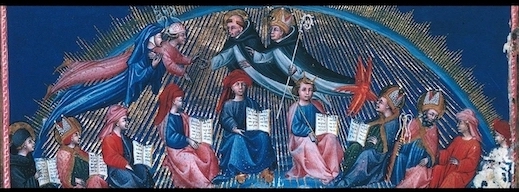Reflexões sobre as causas e consequências do abandono do pensamento medieval
Palavras-chave:
Middle Ages, civilization, crisis, ScholasticismResumo
O pensamento medieval, intimamente ligado à vida e iluminado pela fé, propiciou um sistema doutrinário de profunda coerência e grande amplitude: a Escolástica, que alinhava numa única perspectiva diversos campos do conhecimento. Tal sistema não fugiu à ação de ideologias que, atingindo-o em sua unidade, acabaram por fragmentá-lo em duas correntes de pensamento que percorreram toda a história da filosofia a partir de então, sem jamais se encontrarem numa síntese: o Nominalismo empirista, de um lado, e o Ontologismo racionalista, de outro. O presente artigo procura identificar a origem dessas correntes que desfizeram a unidade escolástica e apontar as consequências teoréticas e existenciais de tal ruptura. /// Medieval thought, intimately connected to life and illuminated by faith, gave rise to a profoundly coherent doctrinal system of great amplitude: Scholasticism, which brought diverse fields of knowledge under one perspective. This system did not escape the influence of ideologies which, affecting its unity, consequently divided it into two currents of thought which, from that moment forward, spanned the entire history of philosophy, without ever being unified: on one hand, empiricist Nominalism, and on the other, rationalist Ontologism. This article seeks to identify the origin of these currents that divided Scholastic unity, and point out the consequences, both theoretical and existential, of this rupture.Edição
Seção
Articles






